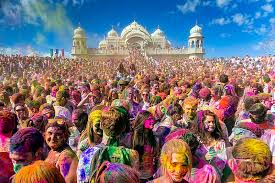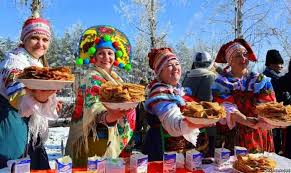Festivals are an essential part of cultures around the world. From local community events to globally recognized celebrations, festivals serve as a powerful medium for bringing people together. Whether religious, cultural, or seasonal, these celebrations allow us to connect with our roots, share joy, and celebrate life’s milestones. In this article, we’ll explore how festivals and traditions unite people, foster community spirit, and preserve cultural heritage across generations.
The Universal Power of Festivals
Festivals have been a part of human history for centuries, and their importance has never waned. They bring together individuals from all walks of life and provide a sense of belonging and unity. Whether they are small, local gatherings or massive international events, festivals offer a space for people to share common values and experiences, despite their differences. They create memories, foster social connections, and keep traditions alive, ensuring that the rich tapestry of human culture is passed on from one generation to the next.
Festivals: A Bridge Between Generations
One of the most significant aspects of festivals is their ability to bridge generational gaps. These celebrations are often passed down through families, communities, and societies, creating a sense of continuity and tradition. By participating in festivals, younger generations learn about their cultural history, customs, and values, while older generations find joy in seeing these traditions carried forward.
For example, during traditional festivals such as Christmas, Diwali, Lunar New Year, and Thanksgiving, families come together to share meals, stories, and experiences. These intergenerational moments strengthen family bonds and create a legacy of shared cultural practices that can be cherished for years to come.
Cultural Identity and Festivals: Celebrating Diversity
Festivals are a reflection of a community’s cultural identity. Every culture has its own unique way of celebrating, whether it’s a religious holiday, harvest festival, or a celebration of local heritage. These celebrations are an opportunity for people to honor their roots and showcase their distinct cultural traditions, whether through music, dance, food, or art.
For instance, the vibrant festivities of Rio’s Carnival in Brazil or the grandeur of India’s Diwali festival are opportunities for people to embrace their cultural heritage while inviting others to join in the celebration. These festivals not only preserve traditions but also foster cross-cultural understanding and appreciation by inviting people from different backgrounds to experience and celebrate together.
Festivals as Social Connectors
At their core, festivals are about bringing people together. They break down barriers between individuals by creating a shared space for joy, celebration, and communal participation. Whether it’s a large-scale event like Oktoberfest in Germany or a small village celebration like the Lantern Festival in Thailand, these occasions offer opportunities for socializing, networking, and creating meaningful relationships.
Festivals offer a unique environment where people can shed their daily concerns, unite with others, and experience the joy of celebration. From parades and fairs to concerts and street performances, these events help create a sense of belonging, where everyone, regardless of background, is welcomed to participate and join in the collective experience.
The Role of Food, Music, and Dance in Celebrating Festivals
A significant part of many festivals is the food, music, and dance that accompany them. These elements are not just about entertainment—they play an essential role in uniting people through shared sensory experiences. From the sweet smell of freshly baked goods at Christmas markets to the rhythmic beats of traditional drumming during African festivals, these sensory aspects of festivals provide a direct connection to culture and tradition.
Music and dance are universal forms of expression that transcend language barriers. Whether it’s the energetic Samba at Carnival or the graceful Bharatanatyam dance during Diwali, the arts play an important role in fostering unity and community spirit. Food, too, acts as a connector, as families and communities come together to prepare, share, and enjoy traditional meals that hold deep cultural significance.
Festivals as Platforms for Social and Cultural Change
In addition to celebrating tradition, many festivals also serve as platforms for social and cultural change. They raise awareness about important causes, highlight global issues, and promote unity among people from different backgrounds. For example, Earth Day, celebrated annually around the world, is a festival that emphasizes environmental awareness and global action. Similarly, Pride Month celebrations work to unite people from the LGBTQ+ community and their allies in advocating for equal rights and social acceptance.
Festivals that advocate for social change provide people with a collective voice and a means to address critical issues, such as gender equality, environmental protection, and human rights. These celebrations inspire action and solidarity, helping to create a better future through communal efforts.
The Economic Impact of Festivals: A Boost for Local Communities
Festivals not only have a cultural and social impact—they also have significant economic benefits. Tourism, hospitality, and local businesses thrive during festival seasons as visitors from around the world flock to cities and towns to partake in festivities. These events drive the local economy by increasing demand for accommodations, food, transport, and entertainment.
For instance, festivals like the Edinburgh Festival Fringe or the Sydney Opera House events attract millions of tourists each year, providing an economic boost to local communities. Smaller, regional festivals also support local artisans, performers, and small businesses, helping to create jobs and promote economic development.
The Future of Festivals: Adaptation and Innovation
As the world evolves, so do the festivals we celebrate. With advancements in technology, social media, and global connectivity, festivals are expanding beyond physical boundaries. Virtual festivals and online celebrations have emerged as a way to reach global audiences and maintain the sense of connection that festivals bring, even when people are unable to gather in person.
In the future, we may see more hybrid events combining in-person and digital experiences, making it possible for people from different corners of the world to participate in festivals, even if they can’t be there physically. The future of festivals is about blending tradition with innovation, creating opportunities for connection and celebration, no matter where you are.
Conclusion: Festivals as the Heart of Human Connection
Festivals are more than just celebrations—they are vital expressions of human culture, identity, and connection. They bring people together across generations, communities, and countries, fostering unity, understanding, and joy. Whether it’s through the sharing of food, music, or dance, festivals remind us of our shared humanity and the importance of preserving cultural heritage.
As we continue to celebrate these traditions, we are reminded of the power of community, the joy of life, and the beauty of diversity. Festivals unite people, break down barriers, and create lasting memories that carry us forward into the future, strengthening the bonds that connect us all.
Keywords: festivals, traditions, cultural celebrations, unity, community spirit, cultural identity, cross-cultural understanding, music, dance, food, social connectors, family traditions, global festivals, religious holidays, cultural heritage, local festivals, social change, environmental awareness, tourism, hospitality, hybrid events, virtual festivals, cultural impact, economic benefits, pride festivals, human connection, festival celebrations, tradition, joy, cultural diversity, family bonding, celebration.





